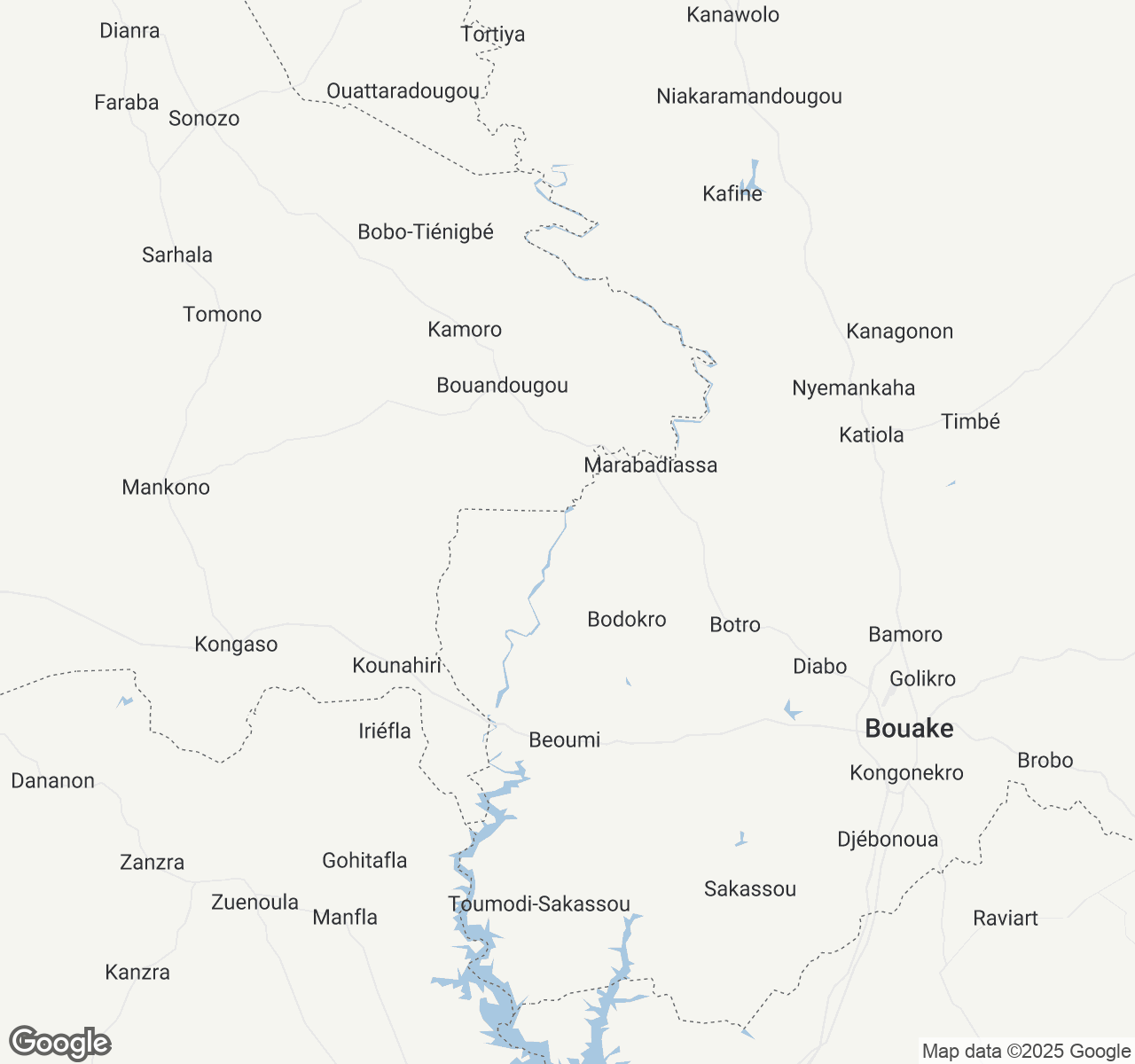
Things to Do in Ivory Coast
Discover the best of Ivory Coast
Plan Your Trip
Essential guides for timing and budgeting
Top Things to Do in Ivory Coast
Discover the best activities and experiences. Book now with our trusted partners and enjoy hassle-free adventures.
Your Guide to Ivory Coast
About Ivory Coast
Where the Atlantic's gentle waves kiss golden shores and cocoa plantations stretch endlessly under African skies, Ivory Coast pulses with an intoxicating blend of tradition and ambition. In bustling Abidjan, glass towers reflect the dreams of a nation rising, while in ancient villages, master craftsmen still carve sacred masks with techniques passed down through generations. The air carries the rich aroma of roasting coffee beans and the rhythmic beats of talking drums, creating a symphony that speaks to the soul. From the misty rainforests of Taï, where endangered chimpanzees swing through emerald canopies, to the vibrant markets of Grand-Bassam where French colonial architecture tells stories of a complex past, every corner reveals layers of beauty and resilience. Here, warm smiles transcend language barriers, and the philosophy of 'ubuntu' – we are because we are – transforms strangers into family. This is a land where ancient baobab trees stand as silent witnesses to history, and where the future is being written in bold, hopeful strokes.
Travel Tips
Transportation: Use registered taxis with meters in Abidjan or negotiate fares beforehand. For intercity travel, book seats with reputable bus companies like UTB or STIF. Avoid traveling at night due to poor road lighting and security concerns outside major cities.
Money: The West African CFA franc (XOF) is the local currency. Credit cards work in upscale hotels and restaurants in Abidjan, but carry cash for markets and rural areas. Exchange money at banks or official bureaux de change for better rates.
Cultural Respect: Greet with handshakes and use both hands when giving or receiving items. Dress modestly, especially in rural areas and religious sites. Ask permission before photographing people, and avoid pointing with your index finger – use an open hand instead.
Food Safety: Stick to bottled or boiled water and avoid ice in drinks. Eat freshly cooked meals from busy local spots where turnover is high. Try national dishes like attieké and grilled fish, but avoid raw vegetables and street vendor salads.
When to Visit
Ivory Coast's tropical climate offers distinct seasons that dramatically affect travel experiences. The dry season (November-March) provides ideal conditions with temperatures ranging from 24-32°C (75-90°F) and minimal rainfall (less than 50mm monthly). This peak season sees hotel prices increase 30-40%, but rewards visitors with perfect beach weather and excellent wildlife viewing opportunities. December through February offers the most comfortable temperatures and lowest humidity. The rainy season splits into two periods: April-July experiences heavy downpours (150-400mm monthly) with temperatures around 26-30°C (79-86°F), while September-October brings shorter, intense showers. During rainy months, accommodation costs drop 25-35%, and the landscape transforms into lush green paradise, though some roads become impassable. Major festivals include the Fête du Dipri in Gomon village (April), the vibrant Festival des Masques in Man (February-March), and Abidjan's FEMUA music festival (March-April). Beach lovers and safari enthusiasts should visit November-March, while budget travelers and photographers seeking dramatic landscapes will appreciate May-June. The brief dry spell in August offers a compromise between good weather and moderate prices, perfect for first-time visitors wanting to experience both cultural sites and natural attractions without extreme costs or weather challenges.

Ivory Coast location map